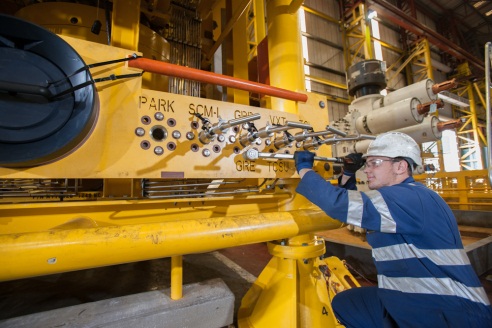Britain’s oil and gas industry is pushing to attract new employees as it plans record levels of capital investment. This sector remains one of the few industries that has not been affected seriously by the credit crunch and is offering careers for life rather than zero hours contracts.
Booms and busts
Booms and busts have always been a part of oil industry realities. Profits, investments and jobs depend on oil prices: there are more jobs when prices are high. However, in Britain this industry’s fortunes are linked symbiotically to taxation. The lower the level of corporate taxes for North Sea oil and gas exploration and production, the greater the capital investment and the bigger the jobs growth.
This is the current situation since the 2013 budget provided some tax breaks in exchange for capital investment. There will be an estimated £13 billion in 2013 capital investment and the figure should be higher in 2014.
Job opportunities
There are job opportunities for every academic level and for those with few academic qualifications as well.
• Start at the bottom as a roughneck. This is a labouring job on an offshore platform or even a land-based drilling rig. You need to be aged at least 18 and physically fit. A couple of A levels would be a good qualification but GCSE passes in science, maths and English are fine. On the job training opens up a career path to become a tool pusher and later a rig supervisor.
• Oil rigs run on food and some of the most important oil and gas jobs are in the catering sector. There are openings at all stages from organising food supplies to cooking meals on a 24/7 basis.
• Engineering graduates will always be in demand. Civil engineers are needed to design, plan and run pipelines and drilling rigs, mechanical engineers are needed to design and run the equipment, electrical engineers to run control systems. Petroleum engineers are needed at every stage of the oil and gas production line, from planning the location of an exploration well to designing the drilling equipment and managing production at an oil and gas field.
• Experienced geologists and geophysicists – those with about 10 years in the industry – are in great demand. Opportunities exist for new graduates in these fields but to stand out it would be a good idea to get a higher degree or some direct experience, possibly working as a roughneck.
This oil and gas industry jobs boom is all about experience. There is a skills shortage in the UK. Oil has always been an international industry and people have to be prepared to move between the North Sea, Gulf of Mexico West Africa and East Asia. The job competition is also on an international level. One way for a fresh graduate or young recruit with no oil industry experience to stand out from a crowd of job applicants to is to take an offshore safety and survival course and obtain a training certificate. Oil and gas will always be a dangerous industry working in distant locations and extreme climates. However, the jobs are there for those who are fit, disciplined, dependable and safety conscious.




